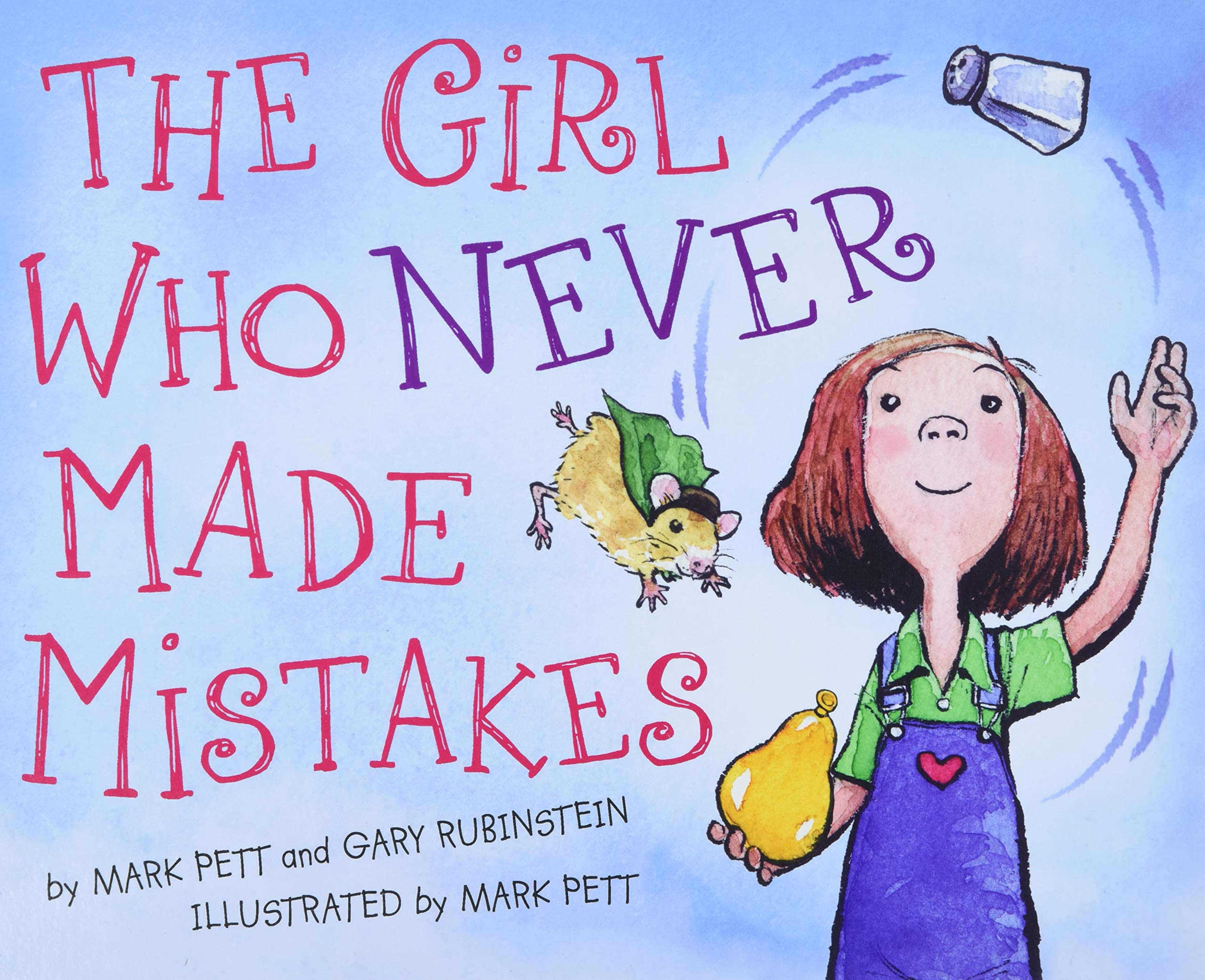Beatrice Bottomwell has NEVER (not once!) made a mistake. She never forgets her math homework, she never wears mismatched socks, and she ALWAYS wins the yearly talent show at school. In fact, the entire town calls her The Girl Who Never Makes Mistakes! One day, the inevitable happens: Beatrice makes a huge mistake in front of everyone! But in the end, readers (and perfectionists) will realize that life is more fun when you enjoy everything—even the mistakes.
This growth mindset back to school book can be used in speech therapy to address social/emotional issues like being ok with making mistakes and dealing with pressure to be perfect. It is also great for noticing character expressions and for targeting mental state verbs as well as for /st/, /er/, /tr/ and /s/ sounds! Discover more of the speech and language teaching concepts for using The Girl Who Never Made Mistakes in speech therapy below:



